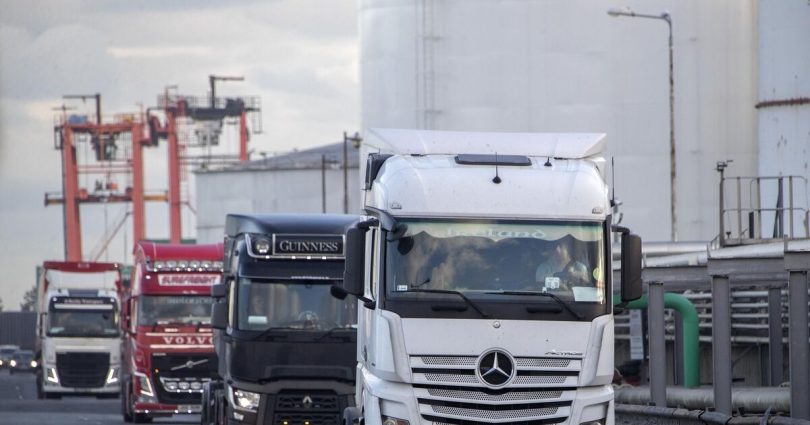[ad_1]
Britain’s Revenue and Customs have said they will implement the new digital customs system across all British ports from October 1 applicable to all imports from Ireland, and all other destinations internationally and from April 1 next year for all exports.
Previous attempts have failed due to disputes with the EU and British industry lobbying for delays. But this time the British customs have said there is no going back: The old paperwork system must be abandoned and the new digital-only will be mandatory for all, as there is an urgent need to improve their data collection and audit facilities and eliminate fraud at borders.
There is no indication that this is a pre-emptive move by the UK tax agency to put in place a system that will facilitate cross-border trade between the North and the Republic, enabling Britain to meet the EU’s request for real-time data on goods moving from Britain to Northern Ireland, which has been a stumbling block in facilitating the implementation of the NI Protocol.
However, it certainly is a step in the right direction.
For the wide range of Irish exporters selling into Britain, the new digital system has the potential to cause chaos, as according to recent research by accountancy firm BDO by their UK office, only half of British importers have registered and trained staff in the new system.
Failure to register or open an account and get HM Revenue and Customs gateway ID to pay duties and Vat will mean backlogs of trucks at all British ports, with goods — particularly agri-food perishables — at the highest risk.
In pre Brexit days, Irish exporters were used to selling to Britain with minimal paperwork, taking on the low-level responsibility of getting goods through the ports and delivering directly to the end customer. This all ends on October 1.
The solution may be for Irish exporters to establish a presence in Britain and register as the importer of record. And whereas this is the likely solution for larger companies, for the many small exporters who ship small quantities irregularly to Britain this could be a step too far and force many to abandon the market altogether.
Liz Truss and the Democratic Unionist Party may, however, see the new system as an opportunity to double down and seek exemptions for all imports into the North from Britain, as they push the mantra that this would be unacceptable interference in the UK’s domestic market.
The EU’s Brexit negotiator Maros Sefcovic recently reiterated he was open to reducing the required checks on the Irish Sea to a very minimum, or a few lorries a day, and hopes that Ms Truss, as prime minister, may be ready to do a deal.
However, he insisted that real-time data on all shipments across the Irish sea would have to be made available to the EU’s customs platform, to enable decision-making on which goods vehicles to call for inspection.
Of the 417,000 goods vehicles travelling from Britain to the North each year, a few held for inspection at Mr Sefcovic’s figure, let’s say three per day, equates to a minuscule 0.3 per cent inspection rate.
This rate of inspection is very low by international standards and is necessary to avoid wholesale gaps in the attempts to protect consumers from faulty foods, dangerous toys, contraband cigarettes and illegal drugs.
Of course, the logistics issue on the Irish sea only tells part of the story. For the past number of years, the DUP has resisted all solutions that do not fit their political agenda regardless of economic consequences.
For the many traders north and south, the sheer scale and scope of the current trading challenges right are deep-seated, with inflation, supply chain disruption, and skilled staff shortages yet to take their full toll, adding to pandemic overhangs. Sensible solutions are needed and can’t come quick enough for traders across this land.
[ad_2]
Source link








